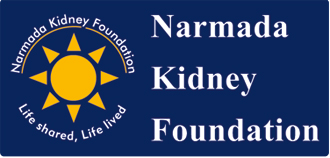
FITNESS AND HEART
One tends to forget that the heart is a muscle that works very hard. It starts beating in the womb at six weeks and continues to beat tirelessly till we live about a hundred times a minute, 100,000 times a day, or 36.5 million times a year! Just like any other muscle the heart needs to be exercised regularly to stay healthy.
The American Heart Association has suggested high blood pressure, abnormal blood lipid levels, obesity, smoking and an inactive lifestyle as the five major risk factors for developing a heart or vascular problem. Those suffering from diabetes also run a greater risk of developing stroke and heart problems.
Stress is another factor that increases the risk of heart disease either directly by pumping up the stress hormones like adrenaline and cortisol, which adversely affect the heart. It can also can cause the blood to form more clots, increasing the incidence of heart attacks and stroke. Stress may also make one indulge in heart unfriendly habits like overeating, exercising less or smoking.
Regular exercise has been shown to have a direct favourable effect on the heart as well as on established risk factors for cardiovascular disease. When lifestyle modification measures like giving up smoking, proper nutrition and regular medication are combined with a regular moderate exercise regimen the results can be dramatic.
Regular exercise helps maintain a healthy weight, tones the heart and body, helps the heart develop more blood flow, helps maintain a healthy blood pressure level, while reducing the blood level of total cholesterol as also the low-density lipoprotein (LDL or “bad” cholesterol), and increasing the levels of the high-density lipoprotein (HDL or “good” cholesterol).
Exercise is a great stress buster. During exercise the happy hormones called ‘endorphins’ are released. They help to lower the heart rate and the blood pressure, stabilize breathing and the normal temperature of the body. It is the endorphins that give a sense of well being and a ‘high’ after intense exercise.
For those who are diabetic, a controlled diet and regular moderate exercise regime helps maintain a healthy weight, controls the blood sugar levels as well as increases the body’s sensitivity to insulin. For those who are not diabetic it actually lowers the risk of developing diabetes. Exercise should be a way of life. It needs to be incorporated into daily living. It should not be something you force yourself to do only when, that pair of jeans refuses to zip up or when there is an occasion coming up that needs you to look good.
It has been rightly said, “There are only two requirements when it comes to exercise. One is that you do it. The other is that you continue to do it.” The marathon you ran last year does not count. The beneficial effects of exercise have a half-life of around 48 hours. After that you need a next round of it to maintain the benefits.
Before starting on a new exercise routine, talk to your physician to understand what kind of exercises you can do and the ones you need to avoid.
For adults, even 30 minutes of brisk walking daily will help reduce the heart risk. It has been shown that even ten minutes of exercise done thrice a day has the same benefit as a thirty-minute continuous work out. It is important to find an activity that you enjoy so that you will sustain the exercise program. It could be running, swimming, cycling, the Zumba if you so desire. Activities such as gardening, using the stairs, housekeeping and even walking the dog count.
Say no to a sedentary lifestyle. Cut down the time spent watching television or cooped up with your ‘devices’. Stop using the remote, get up and change those channels. And of course, get up and fetch that glass of water or anything else you need, yourself.
Instead of complaining about the lack of time or lack of open spaces to exercise, work it into your daily routine. You can make the things you do throughout the day work for you. Take the stairs instead of the lift, walk to the station instead of driving or using cabs/autos, participate or create a physical activity group, walk around the building or exercise during your lunch break or even sitting at your desk.
Next time you are stressed take a walk or do a physical activity that you enjoy, rather than reaching for that smoke or alcohol. It is a healthy stress buster.
Fitness can be catching. Lead the way with family and friends. Form support groups of people who exercise together or remind each other to exercise.
Exercise is not just for those who are overweight, even thin people need to get their thirty minutes of exercise. Exercise is about staying fit not just being thin.
Children should have 60 minutes of physical activity per day. Encourage schools to serve healthy meals and increase the number of physical education periods in the curriculum. It is important to eat healthy, stay happy and exercise regularly to maintain a healthy weight and a healthy heart.
Fitness works. Just get up and move it, move it.
Written By: Dr. Vasundhra Atre, Cardiac Anaesthesiologist, Liver Transplant Team, Global Hospitals, Mumbai
